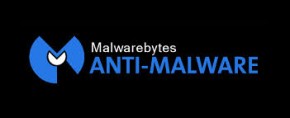Is there really a place for social media monitoring software in doing background checks for prospective college, university students and employee applicants? Should employers be allowed to make decisions about hiring and firing based on information gathered from internet background checks on social media websites such as Facebook and Twitter?
The Federal Trade Commission (FTC) recently granted approval for research into and use of photographs and information uploaded and shared on the social networking phenomenon Facebook. Information on the website’s statistics page indicates that the website has over 750 million users that are considered active, with the average person having 130 friends. Of even more intrigue is the over 30 billion individual pieces of content shared on the website, which includes millions of photo albums and photographs, most of which is accessible by the more recently developed social media monitoring software on the market.
In 2010, Twitter administrators advised that over 50 million tweets were sent online daily. As of March 2011, the website allegedly has over 200 million users. Such a database of varying content is every social intelligence gather’s dream.
Facebook and Twitter are only a few of the many websites that although touted as a place for free expression, can end up being a living nightmare for users. Other websites such as YouTube, Flickr, LinkedIn, hi5, MySpace, personal blogs and forums are also on the radar of social media monitoring software.
In the same way individuals seeking employment are required to acknowledge and personally approve requests to dig into their criminal background or for credit checks to be done, they will also be required to grant permission for research to be done into their behavior on social media websites. Employers and school administrators already use Google to search for information on individuals, with and without their knowledge. This new regulation will unlock content not available on the regular search engines and can in fact make or break professional relationships and potential business partnerships.
The social media monitoring software available to companies that specialize in internet background checks makes is much easier for universities, colleges and prospective employers to access information about students and employees that is not available on a transcript or resume.
Should a student or potential candidate for employment be denied the opportunity because of a biased tweet on Twitter or a less than flattering video on YouTube or MySpace? Is it within the rights of an employer to fire an employee for negative comments made on any of the social media websites about a boss or the company they are employed to? Should a student be expelled for misbehaving online?
Is it that users relinquish their rights to total privacy when they sign up for these social media websites? Should the administrators of these websites fight harder to protect the information and photographs shared by its millions of users worldwide? Can social media monitoring software stifle free expression and creativity online? Who will protect online users from their employers, recruiters and the prying eyes of individuals and companies hired to do internet background checks?
Either way, the regulations are now in place and employers and universities can conduct deep background checks into an applicant’s social media content. Therefore, parents and adults should be forewarned that anything posted to any social media website is ‘fair game’ and could have a devastating effect if inappropriate information is posted online. Then again who’s to judge what is inappropriate.
This new regulation makes it more important that parents talk with their children about what they post online and parents should use software such as Social Shield to monitor what their children are posting online.








